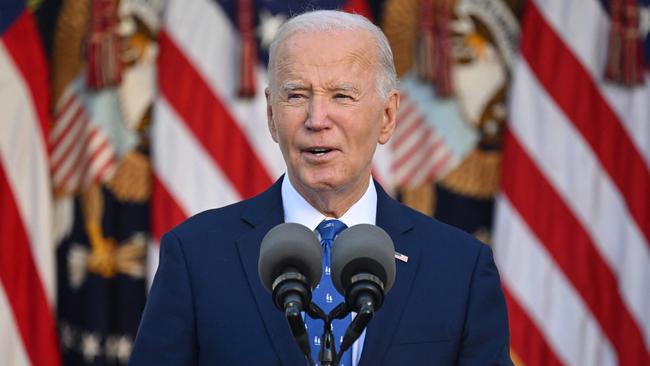White House proposes big expansion of Medicare, Medicaid coverage of obesity drugs
More than seven million more Americans could get coverage for weightloss drugs under the proposal, which won’t limit the medication to people with conditions such as diabetes.
The Biden administration is proposing that Medicare and Medicaid pay for popular anti-obesity drugs for more Americans.
The White House said Tuesday it is moving to make Medicare and Medicaid cover anti-obesity drugs such as Novo Nordisk’s Wegovy and Eli Lilly’s Zepbound for people who are obese, even if they don’t have other diseases like diabetes.
Currently, Medicare pays for the drugs only if an enrollee has diabetes or heart disease. Some state Medicaid programs pay for the drugs for people who are obese, but most programs don’t.
The administration said its proposed rule would extend coverage to an estimated 3.4 million Americans insured by Medicare and an additional four million by Medicaid.
Yet with the drugs listing for more than $1,000 a month, the move would add tens of billions of dollars in outlays by the programs. The proposal, which would have to be finalised by the Trump administration, faces uncertain prospects.
A federal law blocks Medicare coverage of drugs used for weight loss, though the Biden administration said it has found a way to expand payments by classifying obesity as a disease.

The Trump administration, which has vowed to cut federal spending, could resist putting the expensive plan in place.
By issuing the proposal in its waning days, the Biden administration is leaving Trump health officials with the political dilemma of whether to go ahead with an expensive proposal popular with some supporters or to cancel plans while the administration pursues tax cuts.
The proposal would also force President-elect Trump’s choices for leading health-policy positions to confront conflicting views on the weight-loss medicines.
Robert F. Kennedy Jr, the selection for Health and Human Services secretary, has said he wants to tackle obesity, but believes the healthcare system should promote healthy eating rather than pharmaceutical treatments. “There’s a huge push to sell this to the American public,” he said of the anti-obesity drugs on Fox News. “They’re counting on selling it to Americans because we’re so stupid and so addicted to drugs.” Meantime, Mehmet Oz, the choice to run the Centers for Medicare and Medicaid Services, has said on X that the drugs “can be a big help. We need to make it as easy as possible for people to meet their health goals, period.” Today the drugs are in heavy demand after studies found they cut significant amounts of weight, and had other benefits, such as reducing the risk of heart attacks and strokes.
Lilly and Novo Nordisk have pushed to increase insurance coverage of the drugs, by both private and government health plans. But many plans, employers and lawmakers have baulked at the potential costs.

Covering treatment for a tenth of Medicare patients who could qualify for the medications would cost more than $26 billion annually, or about a fifth of the federal insurer’s annual drug spending, according to a New England Journal of Medicine study published in March 2023.
The law governing Medicare’s prescription-drug benefit excludes weight-loss drugs, since lawmakers around the time of the law’s passage viewed them as cosmetic treatments.
The Biden administration proposes circumventing that provision by considering the popular medications as treatments for the disease of obesity, rather than simply weight-loss drugs, said a Department of Health and Human Services spokesman.
Some patient advocates have argued that an exception could be made in the same way that the George W. Bush administration allowed Medicare to pay for weight-gain drugs for patients with AIDS.
A 2023 report commissioned by drugmaker Pfizer argued that the federal Medicare agency has the authority to allow coverage of anti-obesity drugs because they aren’t solely for weight loss, but rather to treat a chronic condition.
The changes couldn’t happen before President Biden leaves office, the Health department spokesman said.
The prohibition on Medicare coverage of the drugs began to crack open earlier this year, when the federal Medicare agency said plans could begin covering weight-loss drugs that are also approved for a second health benefit, such as preventing heart attacks and strokes.
Some Medicare plans began to pay for Novo Nordisk’s Wegovy for people with both obesity and heart disease. More than 20 state Medicaid programs cover Wegovy for weight loss, Novo Nordisk has said.
The HHS spokesman said the Biden administration has been weighing the coverage change throughout the fall and that discussions began before the election.
The Wall St Journal





